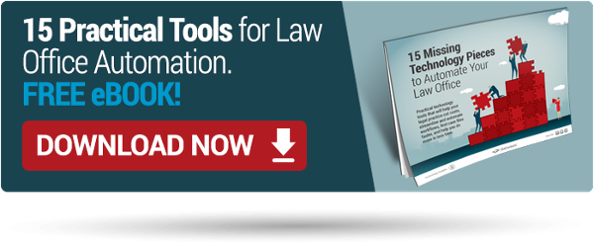
Legal document management software and copiers can help support your litigation every step of the way.
Let’s start with the obvious – there are lots of documents to manage in any legal activity.
I’ve written a few times about the benefits of legal document management, so I won’t rehash those arguments here.
Too often, we see law firms still managing their files as paper documents.
Document management and workflow can help productivity across the six main efforts required for civil litigation. As your law firm works through these steps, the ability to print and copy documents as needed (with your multifunction copiers) and share them electronically helps everyone collaborate on cases.
Investigation
You first must research whether or not to accept a client. Document management-enabled case management allows you to compile all research into a single file, making decision-making – if not simpler – at least easier to find the materials on which you a decision needs to be based.
Regularly used forms can be created and accessible from the copier interface, speeding client intake. With smart use of document management, you can also create document templates for faster ingestion.
Discovery
In discovery, you must exchange information between all parties. This process includes:
- Collections and culling
- Analysis and review
- Legal hold (audit trails)
A fleet of office equipment is needed to handle some aspects of collection. Electronic document management can handle the documents often used in discovery:
- eDiscovery
- Interrogatory responses
- Depositions
And, of course, the “e” in eDiscovery means “electronic,” impossible with document management software (supplemented with records management software and policies and sometimes by specialized eDiscovery software). The ability to use software to search through and sort documents can help speed the discovery process.
Motions
Preparing and filing documents with the court can be time-consuming as a lot of draft-markup and review is required. If you can use software to markup and review files, that’s often faster and more secure. However, if paper is your only option, you need the right copier to ensure that signatures are captured and that relevant material is copied and shared.
Trial and Trial Preparation
I remember watching A Few Good Men recently and during the final scenes was thinking of all the paperwork that goes into trial proceedings. Maybe they would film the movie the same way because it’s not very exciting to have Tom Cruise hold up a tablet or smartphone rather than a stack of documents as he accused Colonel Jessup with the flight logs.
Today, you can file and submit court cases online. Check out our post on eFiling in Texas.
Here is where legal document management can really shine in helping manage the trial documents:
- Exhibits and documentary evidence
- Deposition transcriptions
- Outline of direct and cross-examinations
- Proposed jury instructions
Increasingly, you can also manage video and audio with document management tools as part of your case management application.
Appeal
Create the record of appeal. Appellate printers are often hired. The right copier and software mix can help you keep this task in-house.
While office equipment and document management software isn’t the answer to all of your litigation challenges, they can certainly combine to help you think less about managing the documentation and spend more time litigating based on well-managed documentation.

